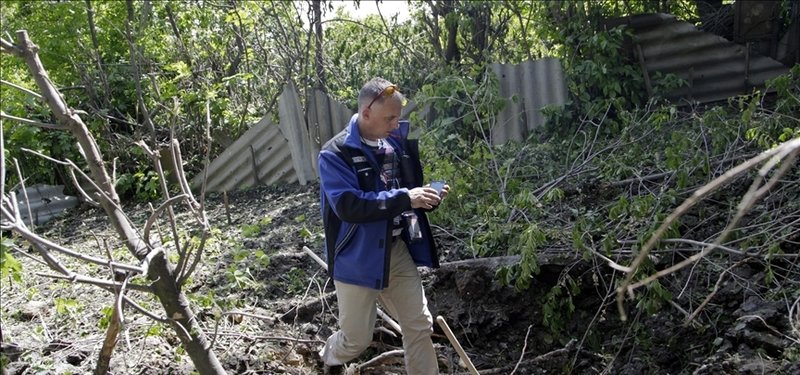
'Wars damage ecological balance, environment'
- Middle East
- Anadolu Agency
- Published Date: 06:40 | 05 November 2021
- Modified Date: 06:40 | 05 November 2021
Wars and armed conflicts around the world not only cause loss of life and property but also damage ecological balance and environment, said a leading environmentalist.
In an interview with Anadolu Agency, Doug Weir, the research and policy director of Conflict and Environment Observatory (CEOBS), said: "When we look at the environmental impact of different conflicts around the world they are always different because they depend on local context," adding that impacts on people differ everywhere, depending on the location, and duration of a conflict.
"So, different conflicts leave different environmental and social footprints in different geographical contexts. These conflicts bring changes in societies and people's responses," he said, adding conflicts also trigger social changes and displacements.
"For example, look at the Syrian conflict and the environmental damages it triggered. Then we can also see environmental stress in Lebanon, Jordan, and Turkey, the communities or countries hosting refugees," he said.
On Nov. 5, 2001, the UN General Assembly declared Nov. 6 as the International Day for Preventing the Exploitation of the Environment in War and Armed Conflict.
REBUILDING SYRIA
According to Weir, the war in Syria has severely destroyed urban areas, which need to be rebuilt. The CEOBS data show the estimated volume of debris in Aleppo and Homs tops 20 million tons, 10 times the debris left by the Sept. 11, 2001 attacks on the World Trade Center.
Given that the debris of the Trade Center took nine months and over 108,000 truck runs to clear, the clearing of the debris in Aleppo and Homs is likely to take years and more than a million truck runs.
YEMEN
Political instability, war, and bombardments have seriously damaged the infrastructure of war-torn Yemen, he said, noting that the water sources of the country were contaminated and sewer systems choked, leading to the outbreak of cholera.
Scarce water sources, weak governance and infrastructure, and food insecurity were some of the consequences of the armed conflict.
In a statement the CEOBS issued on behalf of 16 NGOs in October, it was underlined that environmental degradation adversely affects human health, livelihoods as well as security. The ecological consequences of conflicts could last for decades, it added.
The use of explosives in densely populated urban areas creates tons of debris, the statement said, adding that conflicts could also contaminate groundwater and soil by releasing dangerous substances, as seen in Yemen and Syria.
The statement also called on states that are clearing mines and explosive remnants of war to find ways to reduce the loss of biodiversity amid cleaning efforts.

